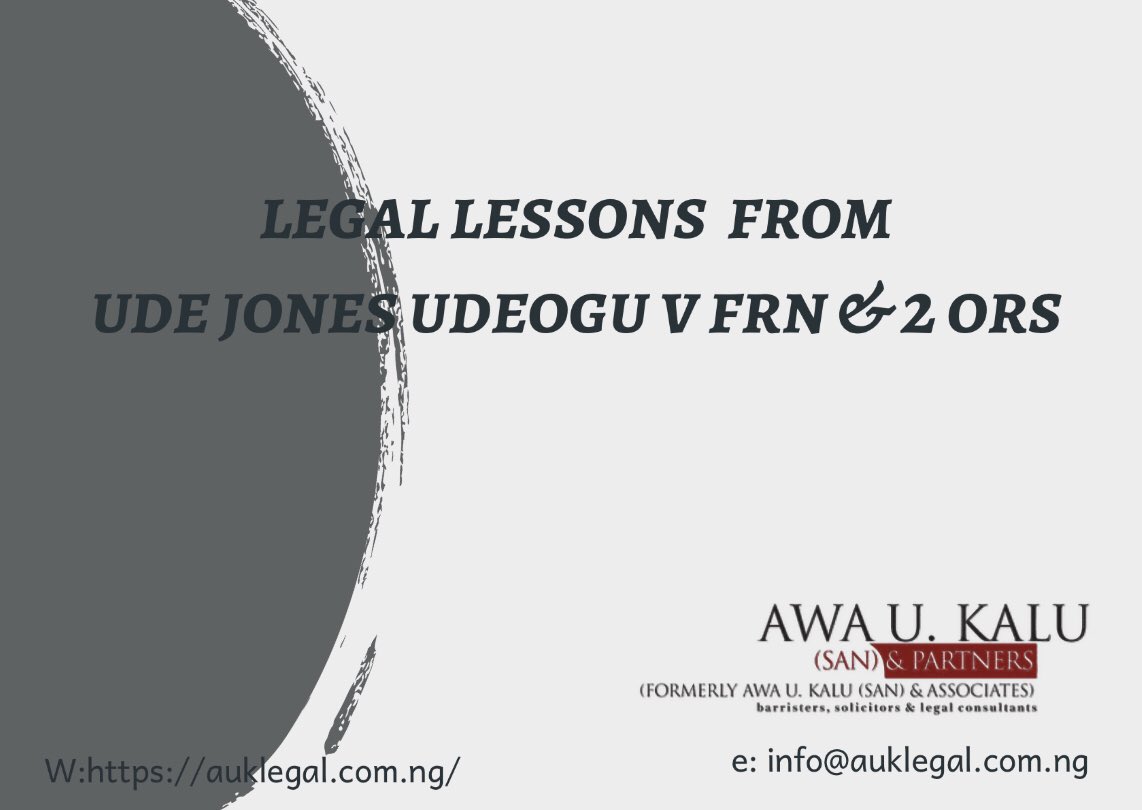The Supreme Court decided in our favour on the appeal arising from the case of Ude Jones Udeogu v Federal Republic of Nigeria and 2 others (SC.662C/2019) which questioned the provision of Section 396(7) ACJA viz-a-viz the express provisions of the Constitution of Nigeria. /1
On 31st October 2016, Ude Jones Udeogu, Orji Uzor Kalu and Slok Nigeria Limited were arraigned before the Justice M.B Idris (Judge of the Federal High Court) on several criminal allegations and charges. /2
Justice M.B Idris was soon elevated to the Court of Appeal as a Justice of that Court. Notably, this didn’t stop the trial process due to the under-listed express reason. /3
The president of the Court of Appeal purporting to act under Section 396(7) of ACJA 2015 issued to Justice M.B Idris of the Court of Appeal his Fiat/Permission to conclude the part heard criminal matter. /4
The court found the defendants guilty and they were sentenced to prison in December 2019. /5
An appeal was lodged at the Court of Appeal and subsequently, the Supreme Court and the crux of our argument was as follows. Section 240, 252 and 290 of the Constitution were in direct contrast with Section 396(7) of ACJA. /6
For purposes of emphasis, we contended that the Federal High Court and the Court of Appeal are two distinct statutory bodies with EXCLUSIVE functions as stipulated by the Constitution. /7
The implication as we understand is that, the Honourable Justice M.B Idris, having being elevated to an appellate justice, lacks the jurisdiction to entertain a matter in a court sitting at first instance. /8
Section 240 CFRN provides that “Subject to the provisions of this constitution, the Court of Appeal shall have jurisdiction to the exclusion of any other court of law in Nigeria, to hear and determine appeals from the FEDERAL HIGH COURT, ... /9
... the high court of the Federal Capital Territory, …or other tribunal as may be prescribed by an act of the National Assembly” /10
In determining the aforementioned case, the Supreme Court held that the constitutional provisions embedded in the aforementioned sections as well as in Section 1(2)(a) and 19 (3),(4) of the Federal High Court Act supersedes the erroneous Section 396(7) of the ACJA. /11
The Supreme Court also observed that such powers of supervision and control over the administration of the Federal High Court is solely bestowed on the Chief Judge of the Federal High Court. /12
Consequently, the President of the Court of Appeal has no right to issue a fiat to a Justice of the Court of Appeal which empowers him to go back to the Federal High Court to finish a pending criminal matter. /13
It was held that not only would such acts be ultra vires and contrary to the express provisions of the Constitution and the Federal High Court Act, but also amount to usurping the statutory functions of the Chief Judge of the Federal High Court. /14
We are proud of our team led by our Managing Partner, Awa U. Kalu (SAN) and the part they played. /15
Thank you
Thank you

 Read on Twitter
Read on Twitter


